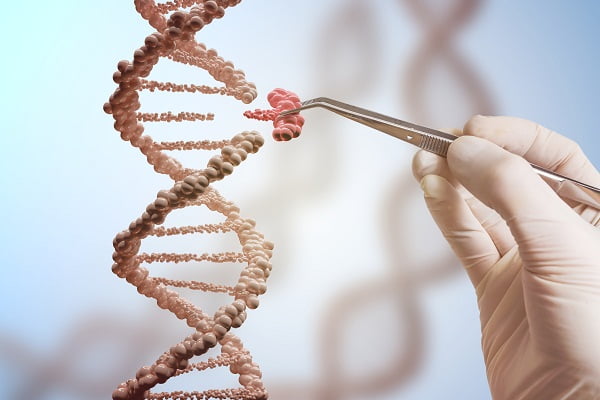
Duchenne Muscular Dystrophy Gene Therapy
Duchenne muscular dystrophy (DMD) is an X-linked muscle-weakening disease that is caused by mutations in the dystrophin gene. Gene therapy using highly functional microdystrophin genes and recombinant adeno-associated virus (rAAV) vectors is an attractive treatment strategy for DMD that is being researched and developed currently.
What is the objective of gene therapy for Duchenne muscular dystrophy (DMD)?
The primary objective of gene therapy is to cure a patient with DMD completely.
There is some research going on that is aimed for delivering a functional, full-size dystrophin gene to muscle cells using a harmless virus. Until now, research has been limited to delivering smaller mini- or micro-dystrophin genes due to restrictions in the size of the DNA fragment that the virus can accommodate.
See also: Duchenne Muscular Dystrophy (DMD): Causes, Signs, Symptoms, Diagnosis, and Treatment
See also: Duchenne Muscular Dystrophy Life Expectancy
Research on gene therapy for Duchenne muscular dystrophy
Professor George Dickson at Royal Holloway, University of London, is running a project funded by the Duchenne forum to deliver newer solutions for gene therapy to treat Duchenne muscular dystrophy.
In this project, he and his team will use multiple viruses each carrying a different part of the dystrophin gene. The different parts of the gene will assemble in the muscle cell to develop the blueprint to produce a full size dystrophin protein. This method, if successful, is expected to significantly improve the treatment strategy for Duchenne muscular dystrophy patients. It will also be effective in treating people with Becker muscular dystrophy.
A phase I clinical trial has also been done to test the safety of this approach in a small number of boys.
Another simple method for delivery can be the use of intravascular routes as capillaries surround all muscle fibers. However, a challenge with this approach is that vectors do not easily pass through vessel walls.
Recent progress in the area suggests that safe vectors will soon be available for dystrophin gene delivery to the muscles of patients. But, till date, there is no effective a method to deliver these vectors to all the muscles of the body. However, crude ways of delivery may be used that may target selected limb muscles to improve mobility and quality of life for patients. But, these methods are not generally applied to complex organs such as heart or diaphragm.
Challenges with gene therapy as a treatment for DMD
There are some challenges with gene therapy for duchenne muscular dystrophy, such as:
- Gene therapy for Duchenne muscular dystrophy requires efficient delivery of a dystrophin expression vector to the muscles of the body.
- The dystrophin gene is too big for the virus to carry, and it is not easy to carry the gene through the virus. The dystrophin gene is 2.4 Mb in size. Approaches are being developed to carry parts of the virus through separate genes.
- Using a mini or micro sized dystrophin gene has its own limitations.
- Muscle transduction must not cause toxic or immunological reactions that are harmful to a person and can lead to further muscle damage.
- Innate and acquired immune defense mechanisms can block the extent of gene transfer, and in severe cases cause reactions that can result in death of a person too.
What benefits can be achieved with gene therapy in future for DMD?
The key benefit that gene therapy can provide is to offer the possibility of delivering a functional copy of the dystrophin gene to muscle cells where it could begin production of the dystrophin protein.






